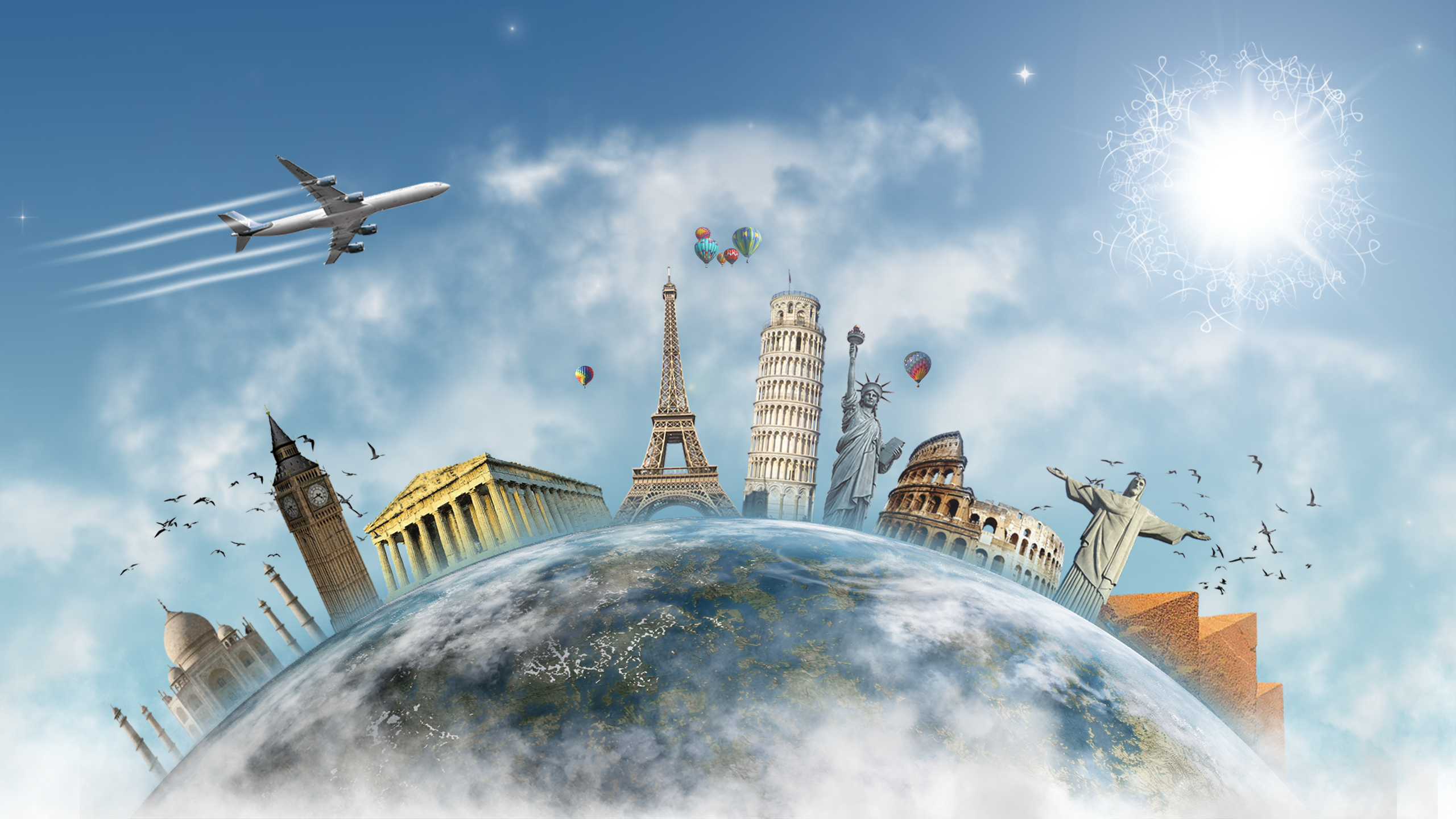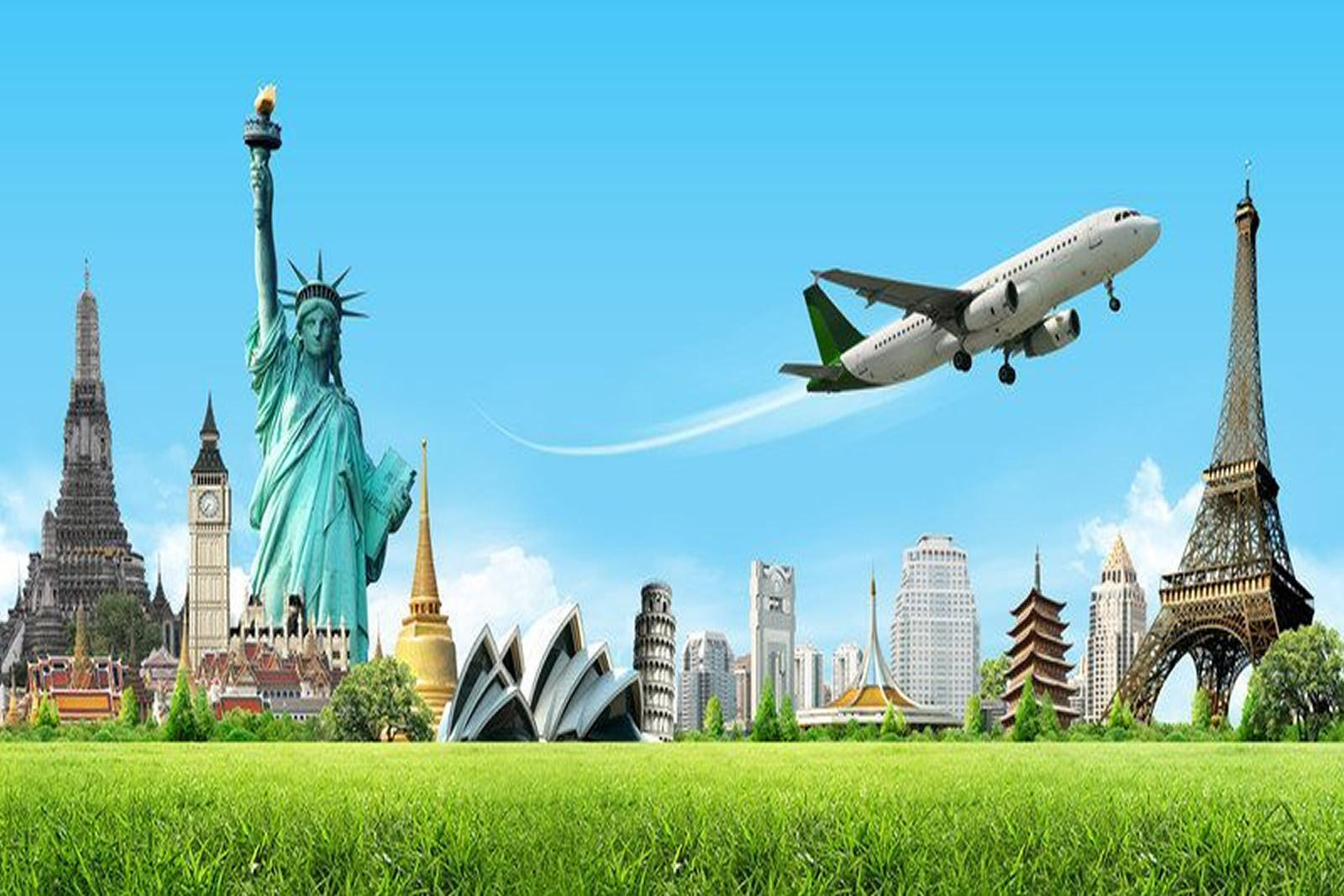11 BBF-2 Alegre Jillian Alegre. 5th Blog
My Travel Blog
ORIGIN OF TRAVEL
In American writing, when you have a one-syllable verb that ends with a single vowel followed by a single consonant, and you want to add a regular inflectional ending that begins with a vowel, you double that final consonant before adding -ed or -ing : stop, stopped, stopping; flag, flagged, flagging. This principle also holds for verbs of more than one syllable if the final syllable is stressed: permit, permitted, permitting; refer, referred, referring. If that syllable is not stressed, there is no doubling of the final consonant: gallop, galloped, galloping; travel, traveled, traveling.
British spelling conventions are similar. They deviate from American practices only when the verb ends with a single vowel followed by an l . In that case, no matter the stress pattern, the final l gets doubled. Thus British writing has repel, repelled, repelling (as would American writing, since the final syllable is stressed). But it also has travel, travelled, travelling and cancel, cancelled, cancelling, since in the context of British writing the verb’s final l, not its stress pattern, is the determining factor. Verbs ending in other consonants have the same doubling patterns that they would have in American writing. An outlier on both sides of the Atlantic is the small group of verbs ending in -ic and one lonely -ac verb. They require an added k before inflectional endings in order to retain the appropriate “hard” sound of the letter c : panic, panicked, panicking; frolic, frolicked, frolicking; shellac, shellacked, shellacking. Canadians, of course, are free to use either British or American spellings.
7 Personal Benefits of Travel
Travel Sharpens the Mind
You've done your old routine for so many years that you could run through it on autopilot. Being dropped into a new environment engages a dormant part of your mind and gets those synapses firing again.
Suddenly, you'll be required to navigate unfamiliar places, read foreign languages, try new things, make quick decisions, and choose your new eating and sleeping schedule.
Unlike at home, all the new sights, sounds, and places will require mental processing and filing. Your brain will welcome the workout! Once you return home, you'll be sharper than ever for better organizing and sprucing up your daily routine.
A Shift in Perspective
"Nobody comes back from a journey the way they started it." — Unknown
Being exposed to new cultures and people will greatly shift your paradigm and create a healthier perspective once you return back home. Seeing different social classes creates compassion and really makes you feel more blessed and content. Large portions of the world's population have to deal with daily threats such as hunger, disease, and landmines.
A hard day at work suddenly doesn't seem so bad when you see people in developing countries toiling in sun-scorched fields from morning to dark, or begging for a drink of water.
A Chance to Try New Things
"Do not follow where the path may lead. Go instead where there is no path and leave a trail." — Ralph Waldo Emerson
While you may branch out at home from time to time by trying new restaurants or splurging on expenditures, traveling kicks you out of the comfort zone and forces you, for better or worse, to try new things!
Even if you don't enjoy your first attempt at scuba diving, at least you'll be able to relate in a new way the next time you see it in a movie or hear someone talking about it.
Becoming a well-rounded individual enhances self-confidence and will help you find new material for conversation in social settings with a wider variety of people.
Who knows, you may accidentally discover your new favorite food or find out that you want to pursue a new career in karaoke!
Meet New People
"A journey is best measured in friends, not in miles." — Tim Cahill
You'll meet far more friendly people on the road than you will under ordinary circumstances at home.
Other travelers are always looking to share experiences, give tips on places to go, and meet people from all over. Striking up a conversation with other travelers is extraordinarily easy.
A polite "so where are you from?" breaks the ice quite easily and may lead to lasting friendships with people from all over the world.
See the Real Deal
"To travel is to discover that everyone is wrong about other countries." — Aldous Huxley
Until you visit a place and form your own opinions, your understanding only comes from what you were taught in school, read in books, or saw on media, which may or may not be a complete truth.
Don't over-research your upcoming destination in guidebooks. Do your best to avoid building a bias toward a place or installing mental filters before you visit. Wait to form your own opinion, remaining objective until you can make up your own mind.
Exercise and Sunshine
Sure, you could just go sweat in the gym under fluorescent lighting, but chances are that you'll be much more active from day to day while on the road, regardless of whether your trip is an adventurous one or simply a relaxing beach trip.
You could be exploring new cities on foot, hiking, swimming, walking between places, and hopefully soaking up some needed sunshine while doing so. And it's guaranteed to smell better than the gym.
Come Home Renewed
After stepping away from home for a while, you'll return with renewed energy, a new set of mental filters, and ready to take on the next big project or challenge. Call it a life reboot.
Getting away for some time, even though it requires effort, will greatly enhance your attitude and productivity once you return home. Sure, you may have some mail piled up and matters to attend, but those are simple challenges easily knocked out.
Breaking up the monotony for a while is a great way to reduce stress and give your life an injection of excitement. Don't be surprised if shortly after your return, you're already counting down days until the next trip!


Comments
Post a Comment